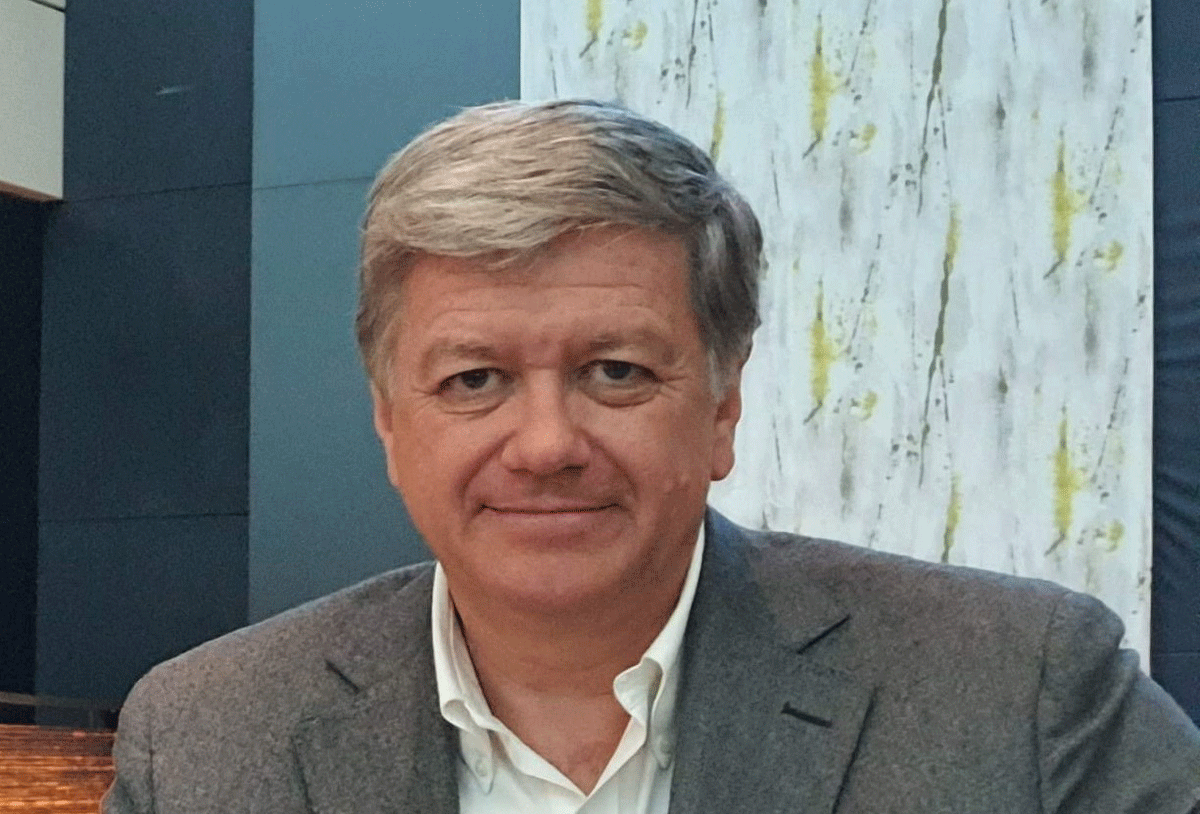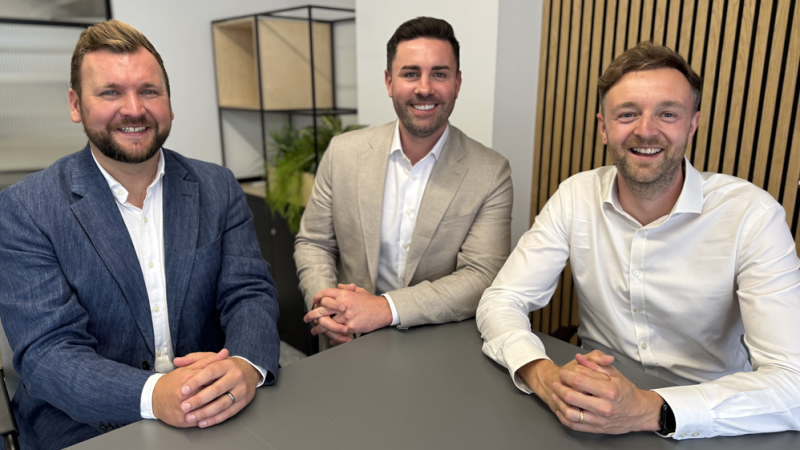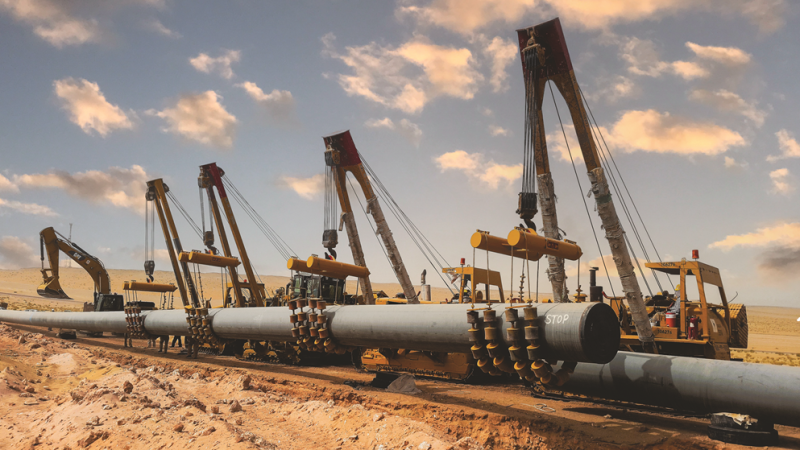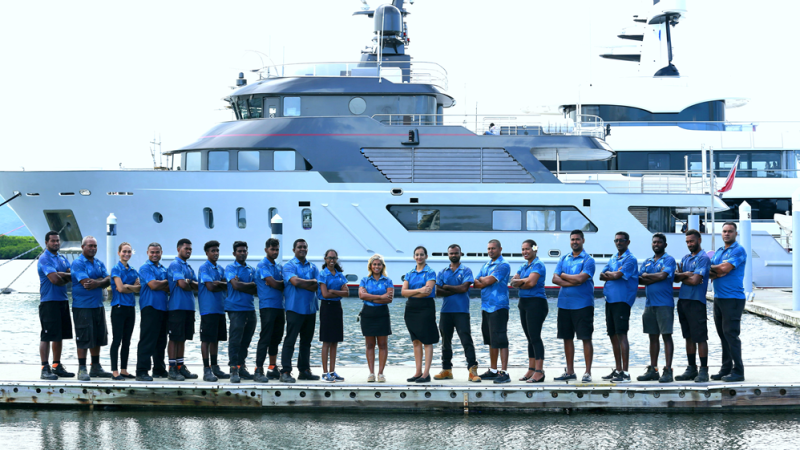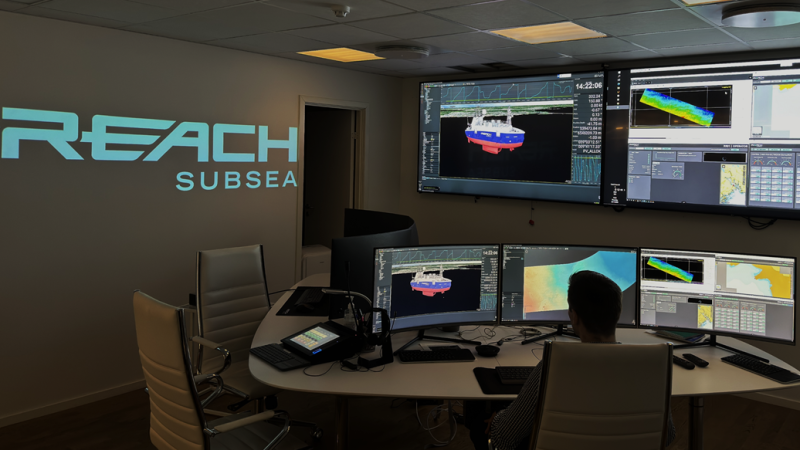Dubai-based Sovereign Global Solution Middle East LLC (SGME) was founded in 2012 by the current CEO Jérôme Paolini and his partner Bruno Pardigon as a maritime service provider. Over the last few years, however, it has radically changed its business focus in 2020 to address the needs of the marine sector of the future, embarking on a programme of development and chartering of its own fleet of uncrewed surface vessels (USV) for the offshore industry. To this end, a fully-owned subsidiary – RC Dock Engineering BV in The Netherlands- was acquired with the aim of developing the MARIP (Marine Autonomous Robotic Intervention Platform) family of USVs and building the first vessel, MARIP-12.
In 2022, the Strategic Development Fund (SDF), the investment arm of the UAE Tawazun Council, became a key partner with a 25% equity investment in SGME, with the aim to launch series production and fleet creation, to be a front-runner for the Middle East and worldwide operational exploitation in offshore USV operations.
“Uncrewed surface vessels are now Sovereign Global Solution ME’s primary focus. These new, innovative products have the potential to disrupt the maritime industry – in terms of performance and carbon footprint, as well as cost,” says Paolini.
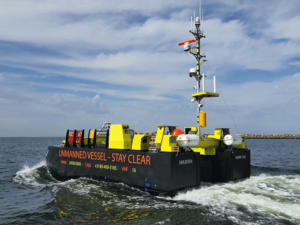 The MARIP family
The MARIP family
He explains that the idea to re-focus the core business came from his long-time Dutch partner, a marine entrepreneur named Ronald Kraft who founded RCDock Engineering. He is the father of the MARIP concept, designed the first MARIP prototype and supervised the whole production as SGME’s Chief Technical Director.
“Developing and engineering a family of uncrewed vessels that are multifunctional platforms, designed for survey missions focused on subsurface infrastructure, has been a major milestone. We offer much larger platforms that have the capacity to perform a range of different missions and with considerable endurance at sea, and this is what differentiates us from competitors, who have mostly focused on smaller vessels devoted to a specific sensor niche.”
SGME’s first vessel in the family, the MARIP-12, a 12-metre long catamaran with a 5-tonne main deck allowance and 25-day endurance, underwent full sea trials in late 2022 in the North Sea and was successfully classed by RINA as their first uncrewed USV in the world to date.
“Our first commercially produced MARIP-12, called ‘MARIP 1201’, was chartered by a major oil and gas service customer in Abu Dhabi, who was so happy with the performance that they decided to purchase the vessel, with Sovereign Global Solution ME contracted to provide operational and technical management due to our unique and world-leading experience in the operational management of USVs”. notes Paolini.
Furthermore, the customer has asked Sovereign Global Solution ME to upgrade the vessel so that it can operate not only with moonpool-mounted sensors but also with towed sonars and magnetometers. These important improvements to the initial design, accomplished over the last two months, will provide the company with an additional competitive advantage.
Paolini affirms that while the first vessel was made in the Netherlands, the next MARIP-12 series vessels will be built in the UAE with a UAE-designed proven autopilot system by Marakeb Technologies. The larger MARIP-24 which is now in the final engineering stage is scheduled for 2024. This will signify another major milestone for SGME.
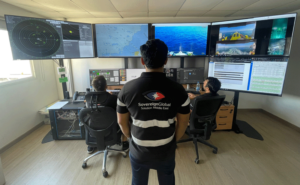 Evolving for continuous improvement
Evolving for continuous improvement
Nevertheless, moving into the next stage is not without its challenges. “Starting industrial production at scale is a major challenge in its own right. The second challenge is to actually operate those vessels. They require specific tech operations, they have to be piloted in a remote fashion, and they have to transfer huge quantities of data which have to be managed and analysed for the customer,” says Paolini.
He points out that the technology is constantly evolving which needs to be reflected in the product, and adapting permanently to better and new technology is a major task. “The fact that we have a stable platform with a five-tonne payload capacity is already a significant advantage as this allows us to adapt to any possible mission that the customer may require, including uncrewed ROV operations such as with the Saab Seaeye Cougar XTi.”
Another challenge comes from the market – USVs represent a completely new way of operation, requiring a significant mindset shift from the offshore industry, now using large surface vessels with large crews on board, with procedures and contractual relationships reflecting this setup.
“Switching to an uncrewed vessel that is working 24 hours a day, with no one on board, that can stay at sea for almost an entire month is completely new. This requires a lot of understanding between our customers and ourselves on how to operate these vessels and how to make the most out of them,” says Paolini.
He acknowledges that while the traditionally conservative maritime players are a bit ambivalent about changing their ways, they are also very much aware that this is the way forward. “All our potential customers worldwide know that sooner or later they will have to change to uncrewed vessels, a development driven by the technological evolution, the need to reduce cost and, last but not least, the need to reduce the carbon footprint,” he says, noting that MARIP’s operational carbon footprint is just one-tenth of an equivalent manned vessel.
Ready for future requirements
In line with these expected developments, the company has defined a five-year investment plan covering not only the expansion but also R&D, to be able to adapt the vessels to new missions and new technology as required, says Paolini.
Looking back at the decade of his company’s operation, he can be rightly proud of what has been achieved. “We were very successful as a maritime service provider and yet decided to completely reinvent our entire business, focusing on a new direction.”
“We had to find new people with a new mindset and put together teams combining the skills and knowledge of the more conservative, traditional, and successful colleagues with the younger, more tech-savvy and open-minded newcomers. This was quite a challenge, albeit an exciting one, and seeing the outcome has been very rewarding. The future seems both very promising and very exciting. We are riding a wave that is propelling us into the future, and that is a very lucky position to be in.”
